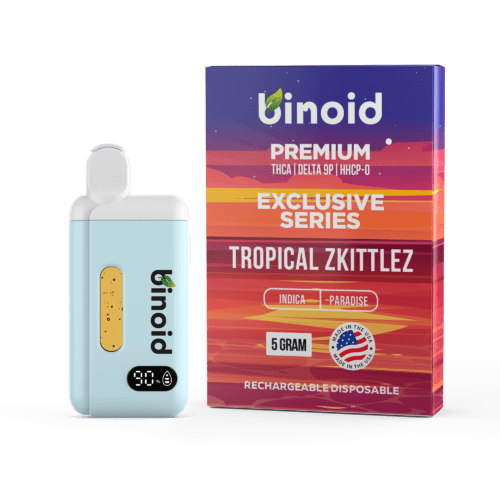
How Long Does THCA Last In The Body?
THCA is another up and coming cannabinoid that’s starting to demonstrate therapeutic potential despite the infancy of its research. Most of you who have been in the cannabinoids game for quite some time are very familiar with THC. Still, while they might sound similar, THCA has incredibly unique properties. Unlike THC, THCA is a non-intoxicating compound unearthed in raw and live cannabis. As the plant dries, THCA slowly converts to THC. Heat expedites this conversion in a process known as ‘decarboxylation’.
Now that we have gone through the brief insight into THCA’s origins, there’s one thing that a lot of people will need to take into consideration before using this cannabinoid, which is the length of time during which it remains in the body. Because it is a THC-based compound, this is especially important since it can impact the results of a drug test.
TO BUY THCA PRODUCTS CLICK HERE
How Long Do the Effects of THCA Typically Last in Our System for?
Just because tetrahydrocannabinolic acid (THCA) won’t create a high, doesn’t mean that its effects aren’t active in the body.
So, how long do these effects last?
Well, keep in mind that after the effects have worn off, you will still have levels of the cannabinoid lingering in the body as it metabolizes. How long the actual effects last depends on selected delivery method.
- Inhalable Products (Vapes, Dabs, Flower): If you’re inhaling THCA through a vaping product, through dabbing, or through smoking/vaporizing flower, then you’re going to experience the effects for the shortest period of time since this delivery method has the fastest absorption rate. This means you’ll have THCA levels active in the body for about 1-2 hours.
- Ingestible Products (Edibles, Capsules): If you’ve ingested the cannabinoid in the form of an edible such as a gummy, or a capsule, then the effects should last for around 8 hours, since ingestible products absorb at the slowest rate.
- Sublingual Products (Tinctures): If you’ve taken a THCA tincture, expect the effects to last for about 4-6 hours, since this delivery method absorbs at a rate somewhere between the other two delivery methods.
Is There a Duration of Time When THCA is Supposed to Leave Our System?
We mentioned that tetrahydrocannabinolic acid is going to remain in the body for a while after its effects are no longer active in the system. But, how long can range from about 2 to 30 days. We know that’s quite a wide range, but that’s because the length of time during which THCA is still detectable depends on a lot of things, including the last time you took the cannabinoid and how your metabolism works.
- We do know that after about 30 minutes of THCA’s absorption, somewhere around 50% of the cannabinoid metabolizes.
- Then, another 25% metabolizes in about a half an hour.
- This leaves behind 25%, which can take longer to metabolize since the process slows down quite a bit at this point.
What This Means for Drug-Testing Purposes
Tetrahydrocannabinolic acid is not intoxicating, but it can show up in drug tests regardless because it is metabolized by THC-COOH (enzyme that breaks down all THC compounds).
Method #1: Urine Tests: Urine tests can detect THC-COOH levels following THCA consumption. This is the most common type of test administered by an employer or probation officer, and it’s very reliable. It can determine if a person has consumed THC within the last 2-30 days, give or take.
Method #2: Saliva Tests: Saliva tests can detect THC usage over the last 10 hours, but it is unknown whether or not they can detect THCA.
Method #3: Blood Tests: Blood tests can identify THCA, but only while THCA is active in the body – not after the effects have worn off. Blood tests are usually administered in hospital settings.
Method #4: Hair Tests: A forensic hair strand test can find THCA levels about 90 days after the last dose was taken. This type of test is usually administered during an autopsy report, since it’s time-consuming and expensive.
Method #5: Perspiration Tests: A perspiration test is usually done for clinical testing since it’s expensive, time-consuming and expensive. It involves attaching a patch to a person’s skin for two weeks, as THC-COOH can be found in their sweat.
What Actually Plays a Role in How Long THCA Could Normally Last in the Body For?
As mentioned, tetrahydrocannabinolic acid can last in the body for anywhere from a couple of days to a month after your last dose. That’s because there are a lot of individual aspects that can change how long it takes for your body to fully metabolize the THCA in your body.
#1: Frequency of Use
How often you take THCA makes a big difference. Taking it once a week gives the metabolism a chance to clear out each dose before the next one is consumed. Taking it multiple times daily means that you’re adding more THCA into your system than your metabolism can keep up with.
#2: Delivery Method
Delivery method also likely makes a difference, similarly to how it affects the duration of effects. Ingestible products like edibles probably take longer to metabolize than sublingual products, with inhalable THCA products metabolizing the fastest.
#3: THCA Product Strength
How many milligrams of THCA you consume makes a difference, too. The more milligrams you take, the longer it will take for the metabolism to break down each one.
#4: Your THCA Metabolism
We know that some people have a metabolism that’s faster than others, based on things like diet, genetics, current health and water intake. A faster metabolism will naturally break down THCA faster than a slower one.
#5: When You Last Took THCA
If you only took THCA a couple of days ago, chances are that it’s still in your body. Each day, there’s less and less remaining until it’s fully metabolized. If it’s been over a month since you’ve last consumed THCA, you’re almost definitely clear.
#6: THCA Product Quality
Of course, that said THCA product’s quality level also matters. A low-quality product that’s close to expiring or made using poor extraction methods can be so chemically unstable that most of the cannabinoid fails to even fully absorb into the system.
How Long After Using THCA is it Safe to Take Any Type of Medication (Prescription or Non-Prescription)?
Most cannabinoids seem to suppress CYP3A4, a metabolite that breaks down many common medications that are both prescription and over the counter. CYP3A4 is critical as without it, drugs would accumulate in the bloodstream, potentially causing toxicity. This means that you need to be careful when taking medications if you’re using tetrahydrocannabinolic acid.
There are no studies that show the effect of tetrahydrocannabinolic acid on specific medications, so we cannot actually answer this question properly. But, we do encourage you to talk to a doctor if you’re on any medications in order to avoid a potentially harmful interaction.
The Bottom Line: It All Depends
Tetrahydrocannabinolic acid may not be psychoactive, but it can still trigger a positive drug test result. Basically, if you’re going to be drug-tested in the near future, you will need to be thoroughly sure that THCA is no longer in the system. Essentially then, if taking a drug test within the next few weeks, might be best to simply avoid this cannabinoid altogether, just err on the side of caution.
THCA hemp-derived compound that has been found to stay in your system around 30 days in the body before being completely gone. If you are taking a drug test, we recommend refraining use of THCA products such as vape cartridges, gummies or tinctures as they will fail a drug test.




